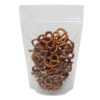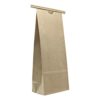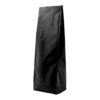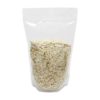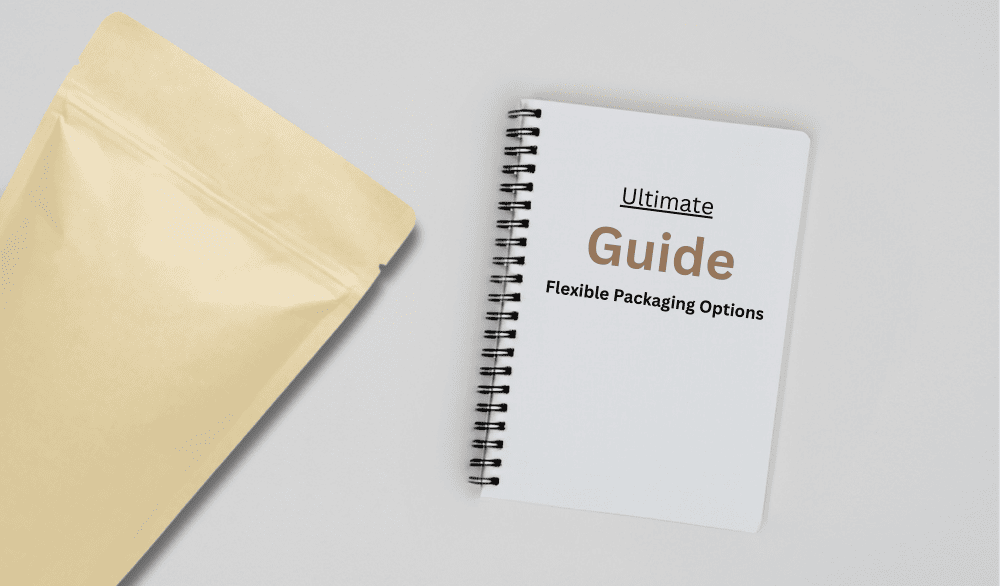Blog
The Ultimate Guide to Choosing the Right Food Bag: A Comprehensive Overview of Flexible Packaging Options
The demand for convenient and efficient food packaging solutions has increased significantly. Flexible packaging, such as food bags, has emerged as a popular choice due to its versatility, functionality, and sustainability. With various types of food bags available in the market, it’s important for consumers to understand their unique features, benefits, and applications. In this blog post, we will explore the world of food bags, including stand-up pouches, flat bottom bags, resealable bags, and more. Whether you need to store, transport, or display your food products, this guide will help you make an informed decision when selecting the most suitable food bag for your specific needs.
Stand-Up Pouches: Versatility and Convenience
Stand-up pouches have gained immense popularity in the food industry due to their ability to stand upright on store shelves, providing excellent visibility and enhancing product presentation. These pouches are typically made from laminated films, which offer barrier properties to protect the contents from moisture, light, and oxygen. Stand-up pouches are available in various sizes and styles, including spouted pouches for liquids and zipper pouches for re-sealability. They are ideal for packaging snacks, cereals, pet food, and even liquids like sauces and beverages. The convenience and versatility of stand-up pouches make them a go-to choice for many food manufacturers and consumers.
Flat Bottom Bags: Stability and Shelf Appeal
Flat bottom bags, also known as box pouches, are designed to stand steadily on store shelves, thanks to their flat base. This unique construction allows the bag to expand when filled, providing stability and minimizing the risk of tipping over. Flat bottom bags offer ample space for branding and product information, making them an excellent choice for enhancing shelf appeal. These bags are commonly used for packaging coffee, tea, granola, nuts, and other dry goods. The enhanced shelf presence and stability of flat bottom bags make them an eye-catching and practical solution for food packaging.
Resealable Bags: Freshness and Convenience
Resealable bags have revolutionized food storage and preservation. These bags feature a built-in closure mechanism, such as a zipper or slider, allowing consumers to open and reseal the bag multiple times, thereby maintaining the freshness of the contents. Resealable bags are widely used for packaging snacks, frozen foods, produce, and other perishable items. They provide easy access to the contents while ensuring optimal freshness and convenience. Whether you need to preserve leftovers or carry snacks on-the-go, resealable bags are an excellent choice for extending the shelf life of your food items.
Insulated Food Bags: Temperature Control and Food Safety
Insulated food bags are specifically designed to maintain the temperature of hot or cold food items during transportation. These bags are made from insulating materials that provide a thermal barrier, preventing heat transfer to or from the contents. Insulated food bags are commonly used for delivering food, catering, picnics, and grocery shopping. They are essential for ensuring food safety and quality, especially for perishable items that require temperature control. Insulated food bags come in various sizes and styles, including tote bags, backpacks, and delivery bags, catering to different needs and requirements.
Gusseted Bags: Increased Storage Capacity
Gusseted bags are a popular choice when you need a food bag with increased storage capacity. These bags feature expandable side folds or pleats, which allow the bag to expand when filled with bulkier or irregularly shaped items. The gussets provide extra volume and stability, making them suitable for packaging items like grains, pasta, confectionery, and more. The increased storage capacity of gusseted bags maximizes shelf space utilization and offers flexibility in packaging different food products.
Vacuum Sealed Bags: Extended Shelf Life
Vacuum sealed bags have become increasingly popular for preserving food freshness and extending shelf life. These bags are specially designed to remove air from the packaging, creating a vacuum seal that minimizes the growth of bacteria and slows down food spoilage. Vacuum sealing helps maintain the taste, texture, and nutritional value of the contents for a longer period. These bags are commonly used for storing meats, cheese, dried fruits, and other perishable items. By keeping the food airtight and protected, vacuum sealed bags are an excellent choice for extending the shelf life of your favorite food products.
Flexible packaging, including food bags, offers a wide range of options to meet the diverse needs of consumers and food manufacturers. From stand-up pouches and flat bottom bags to resealable bags and insulated food bags, each type has its own unique features, benefits, and applications. By understanding the characteristics of these food bags, consumers can make informed decisions when selecting the most suitable packaging solution for their specific needs. Whether you require versatility, stability, freshness, temperature control, increased storage capacity, or extended shelf life, there is a food bag available to meet your requirements. Embrace the world of flexible packaging, and enjoy the convenience and functionality it brings to your food storage and transportation needs.

